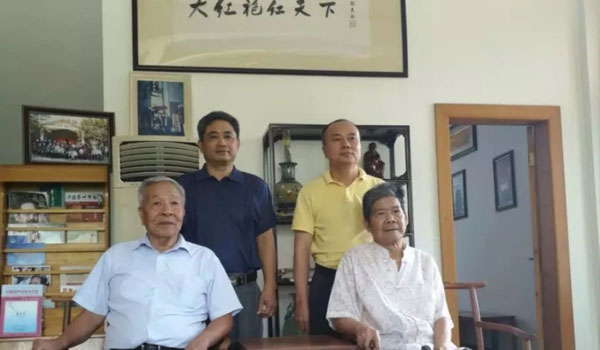China’s Old White Tea Master
Facing the “China’s Old White Tea Master”, drinking a 40-year-old tea | Overseas Sales of Old White Tea: The Story of Time and Friends
Original by Youzhaijun, Youzhai Publishing Reading Research, May 10, 2019
Wong Kam Chi was one of the earliest tea traders to introduce Wuyi rock tea to Hong Kong in the 1980s. He has been a witness and participant in China’s tea exports and overseas sales history of oolong tea, Pu-erh tea, black tea, white tea, and other teas for over 40 years.
Over the past 40 years, he has made outstanding contributions in Chinese tea trade, production, evaluation, supporting new talents, and promoting tea culture. In 2006, he was awarded the “Tea Expert Award” at the first ASEAN Tea Industry Expo in Malaysia.
At the age of 65, he was diagnosed with cancer but miraculously overcame the disease and fully recovered. Now, at almost 80 years old, he remains passionate about tea and still serves as a judge for the Ding Cheng Tea King competition at the China (Shenzhen) International Tea Expo. During the tea season each year, he can still be seen in Wuyishan and Xishuangbanna.
The book “Wuyi YueMing: A Memorial Collection of Rock Tea Master Yao Yueming,” which he edited, is a tribute to his mentor and friend Yao Yueming, and will be released in Wuyishan and Hong Kong in July and August this year. Yao Yueming is a key figure in the contemporary Wuyi rock tea industry. “To understand Wuyi rock tea, one cannot ignore Yao Yueming.”
Wong Kam Chi is a well-known tea production and evaluation expert in the Chinese tea industry and the founder of the Hong Kong Hip Woo Tea Company Limited. He has devoted his life to tea and his carefully crafted “Wong’s Eight Maxims for Tea Evaluation: Beautiful Appearance, Clear Soup, Mellow Taste, and Strong Aroma” and “Wong’s Eight Maxims for Tea Roasting: Integration, Transformation, Elevation, and Promotion of Flavor and mellowness” have gained the attention of tea experts and professors.
He says, “The Chinese have not been drinking tea properly for three generations. Now is the best time.” He also says, “There is no discrimination in tea drinking, don’t be biased. A thousand teas, a million tastes, and those that suit your taste are precious.” He also says, “If making tea does not break with tradition, then it is not innovation. I want to use my craftsmanship to turn decay into magic and allow ordinary people to drink a good cup of tea.”
In this face-to-face tea dialogue with Wong Kam Chi, he shared the story of tea and the friendship of time. He talked about his love for tea and his contributions to tea culture, emphasizing the diversity and inclusivity of tea. He also mentioned his pursuit of innovation and breaking with tradition, hoping to allow more people to taste good tea. This tea dialogue allows us to deeply appreciate the charm of tea culture and cherish the value and significance of tea even more.



